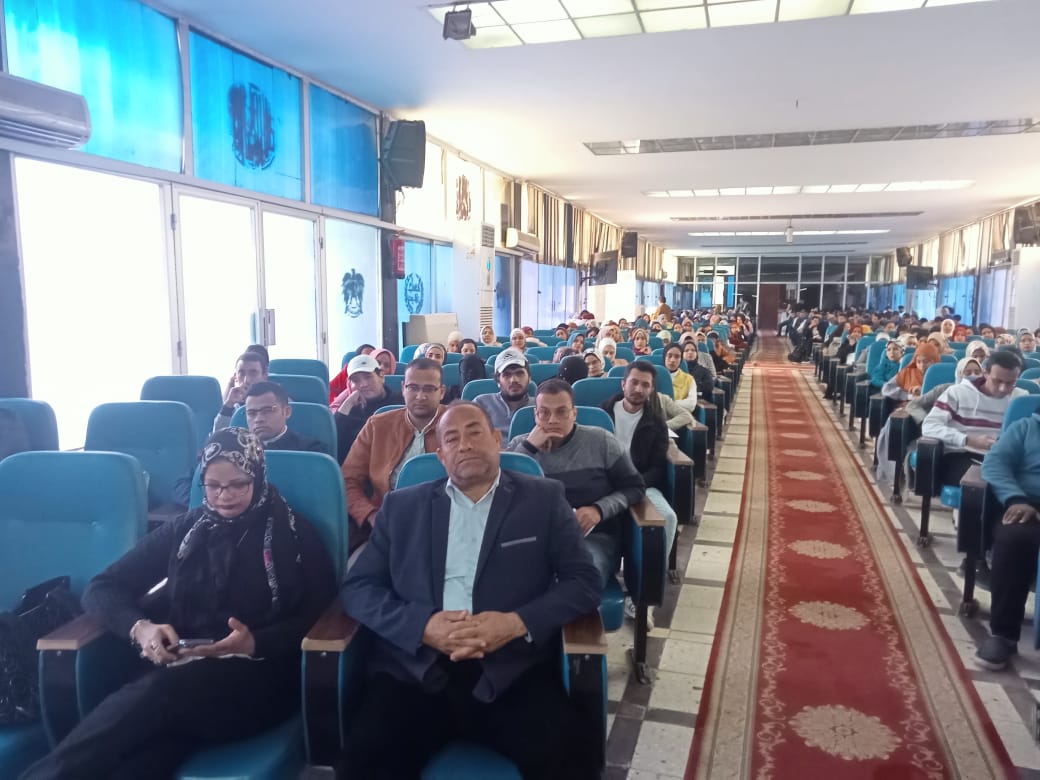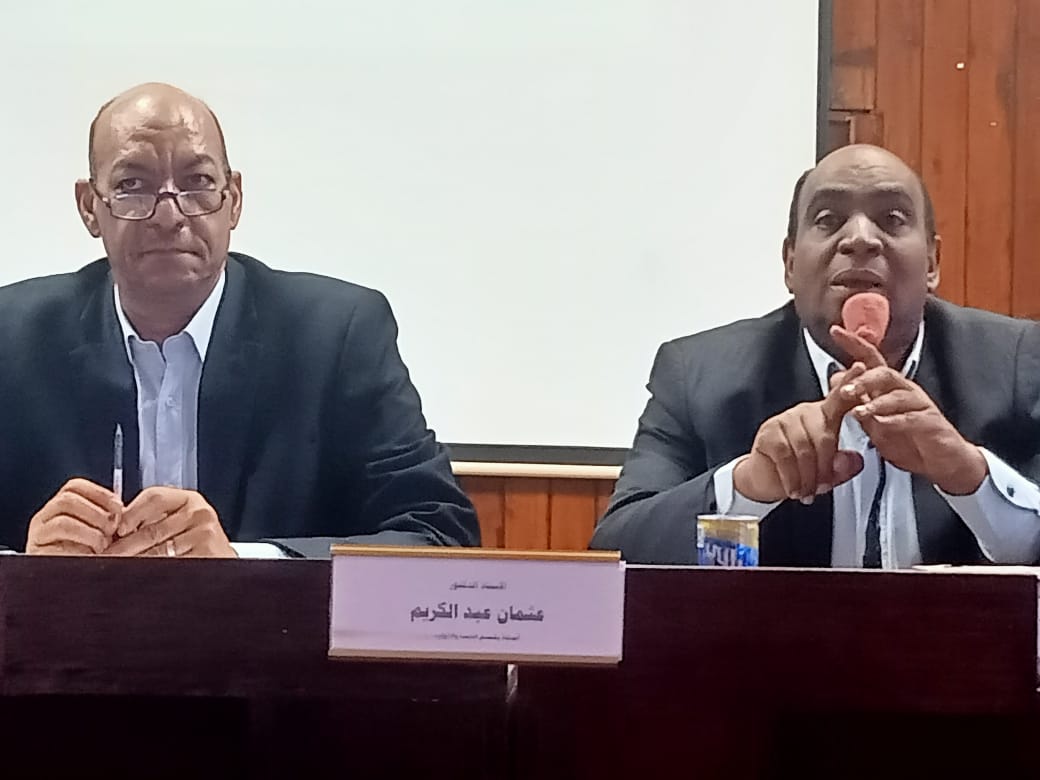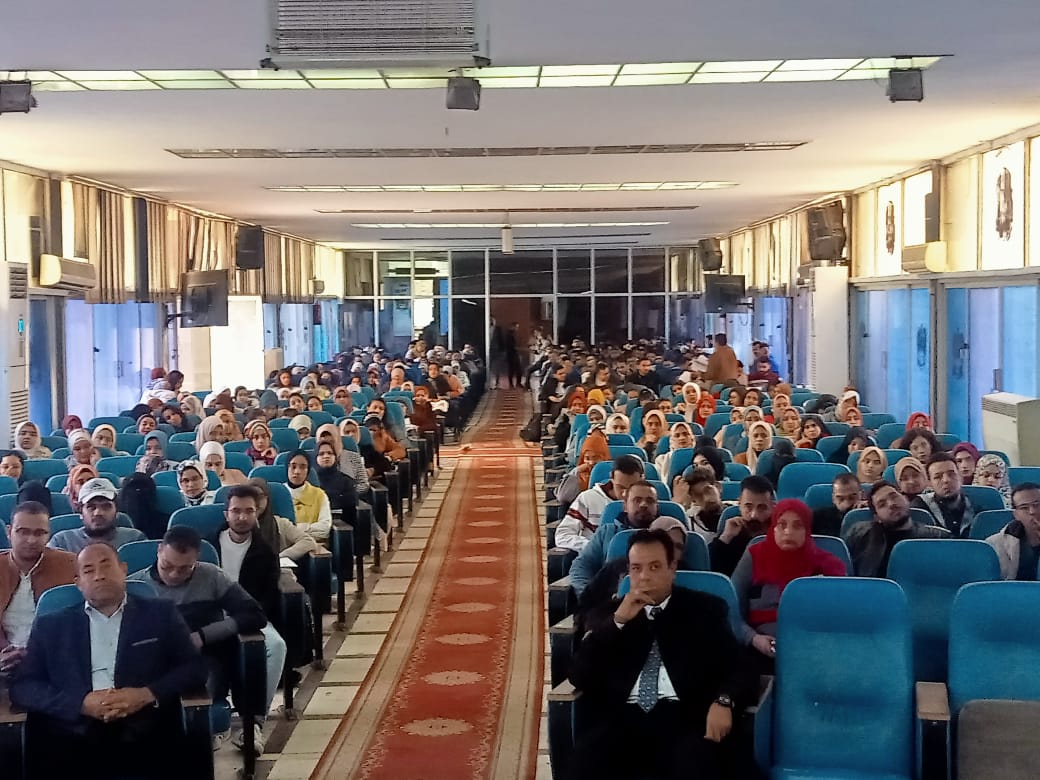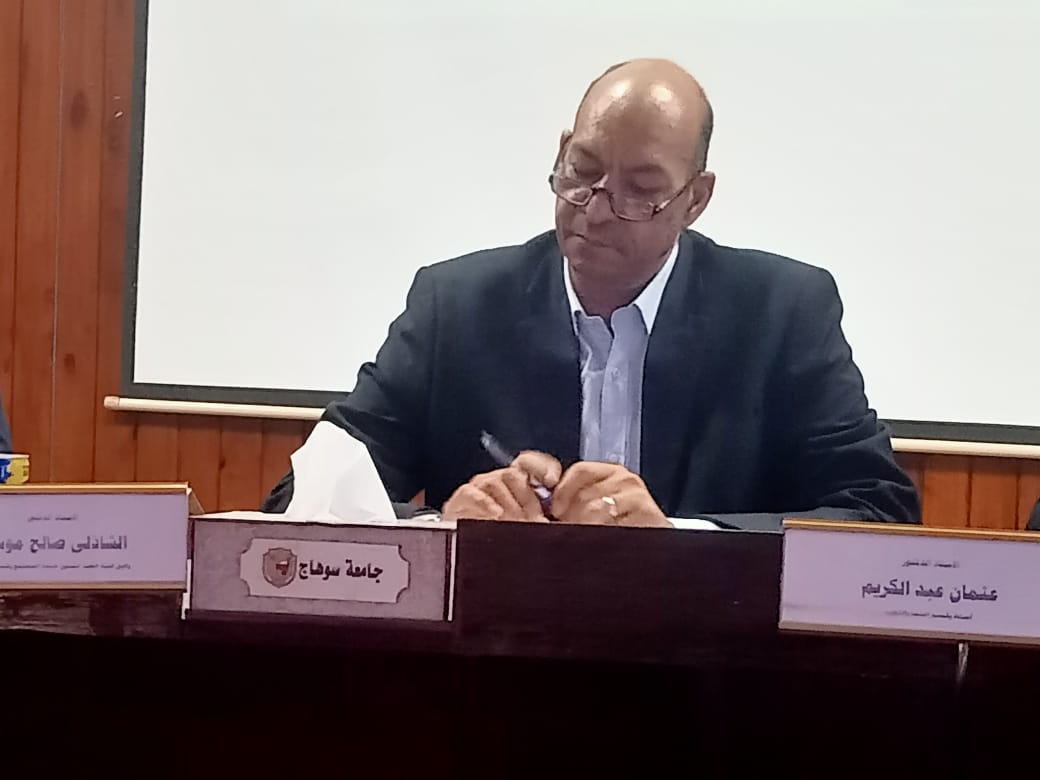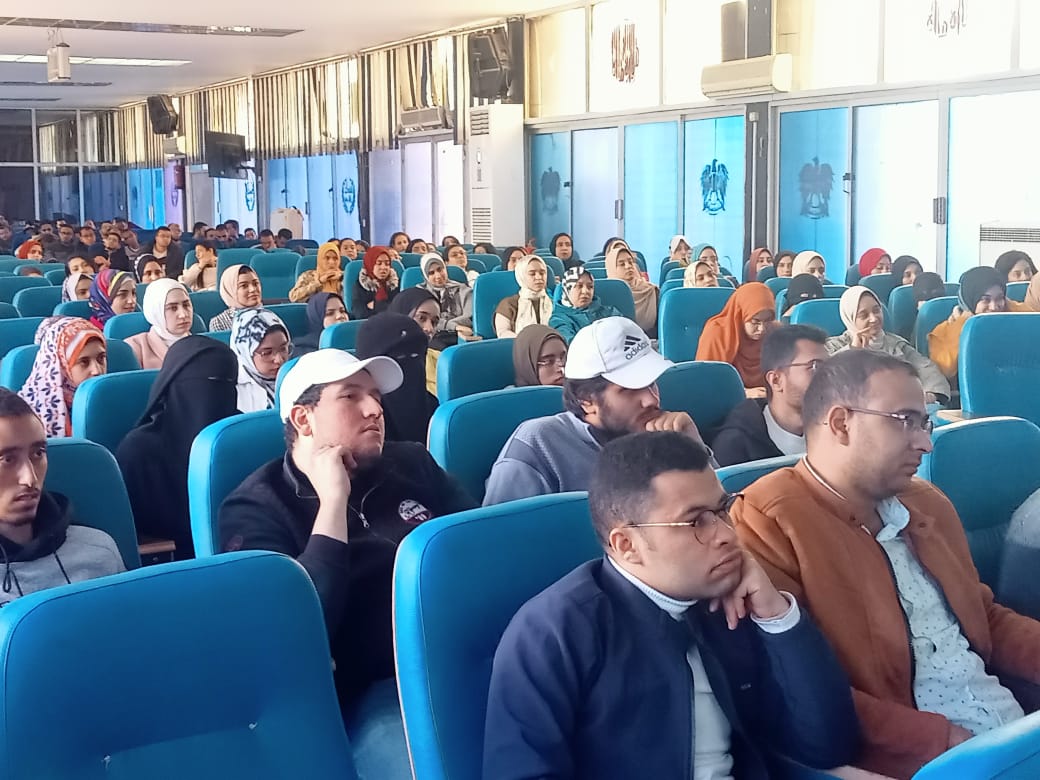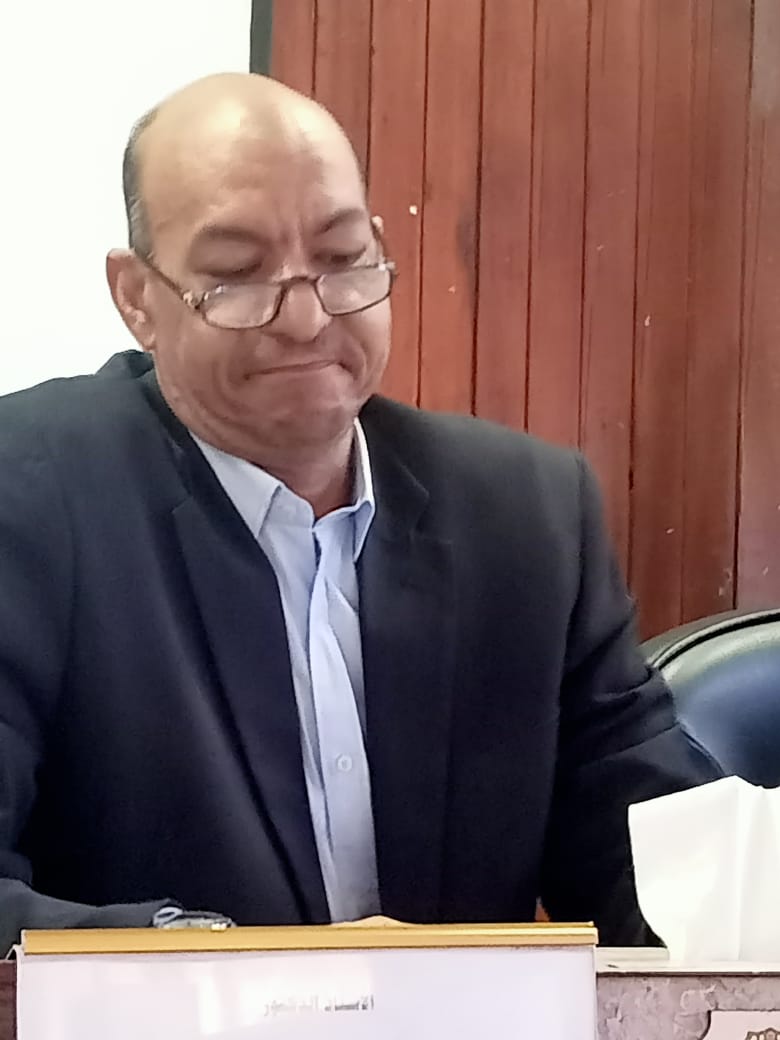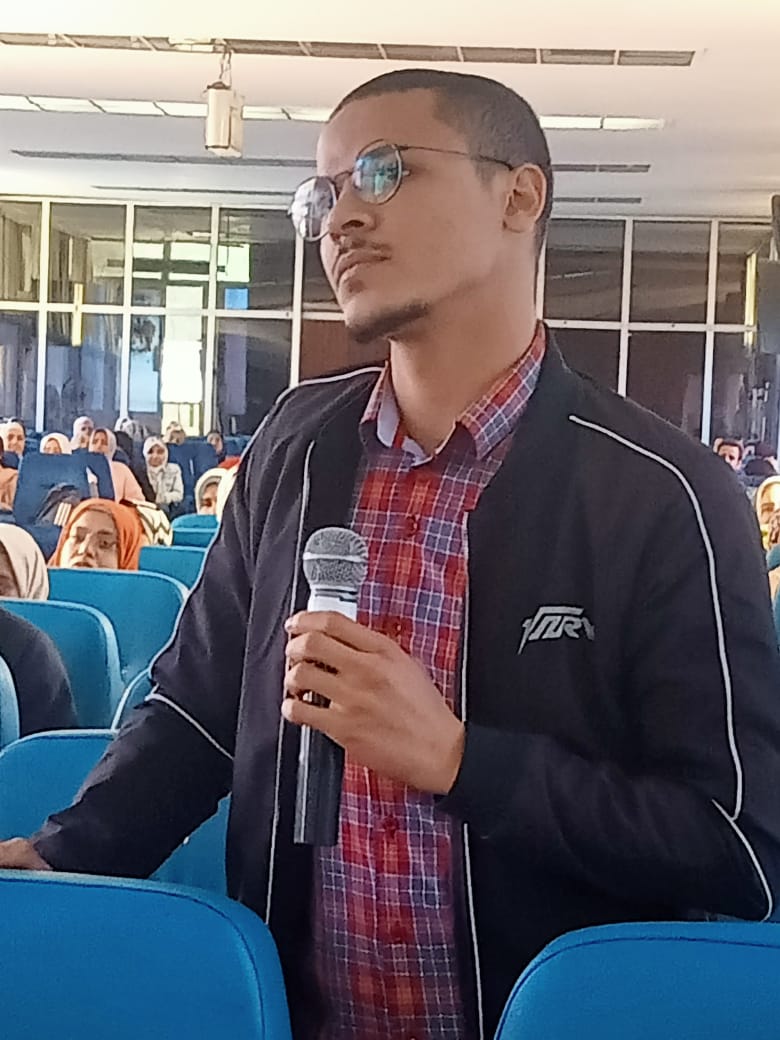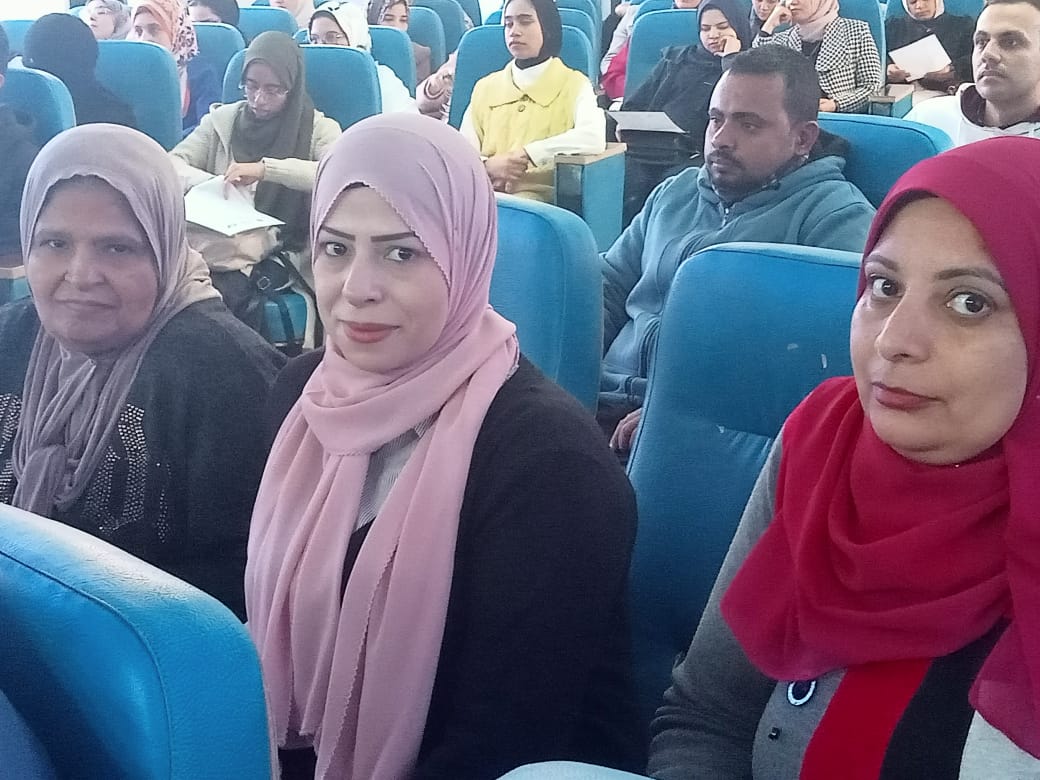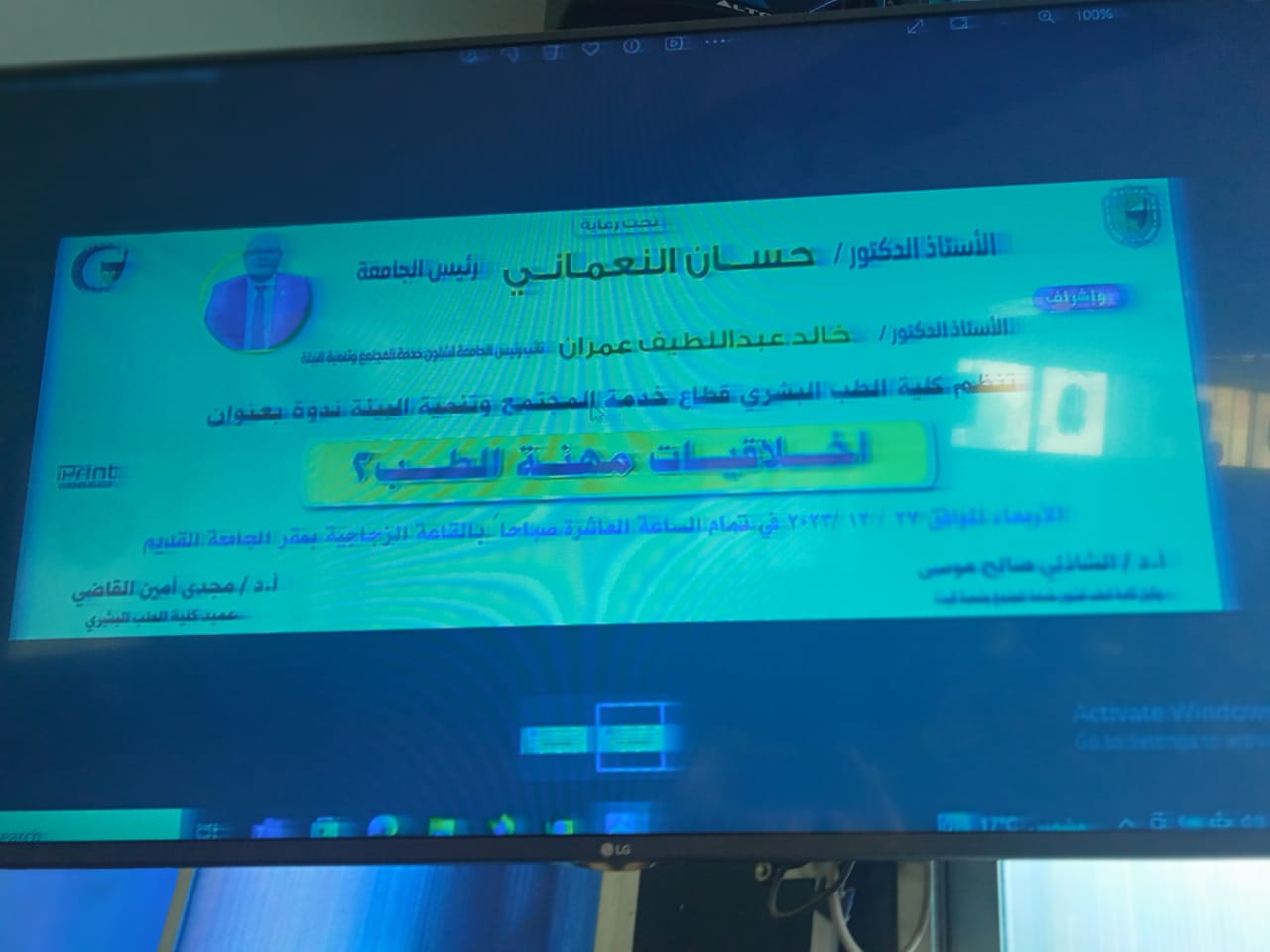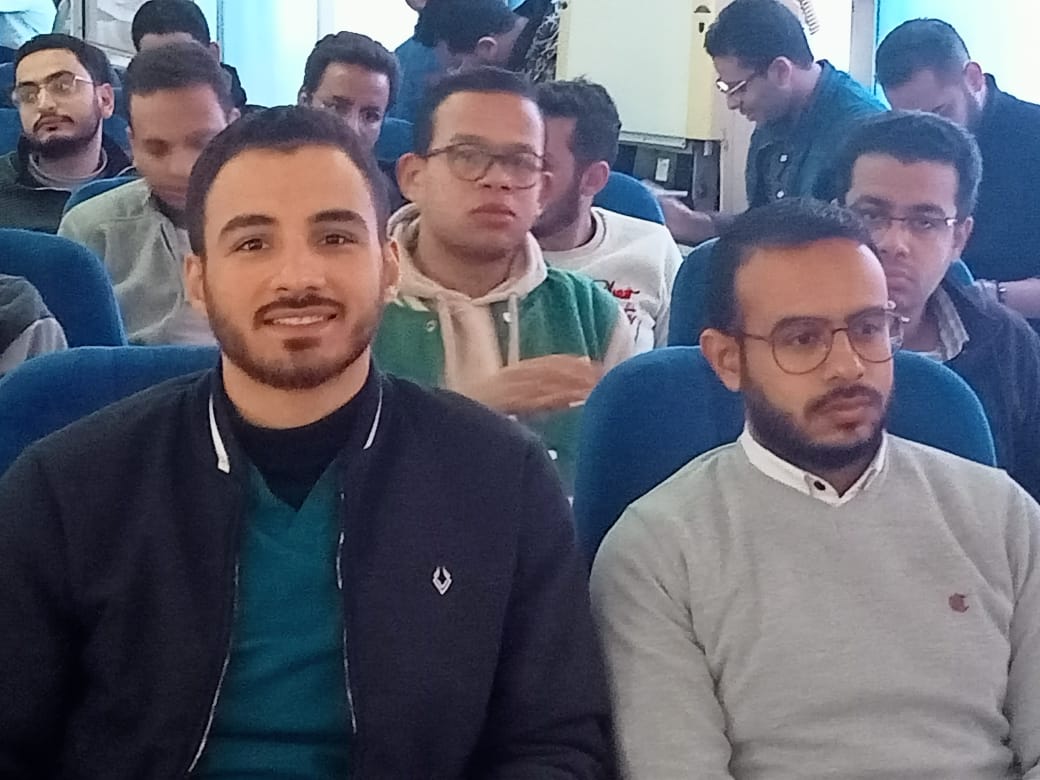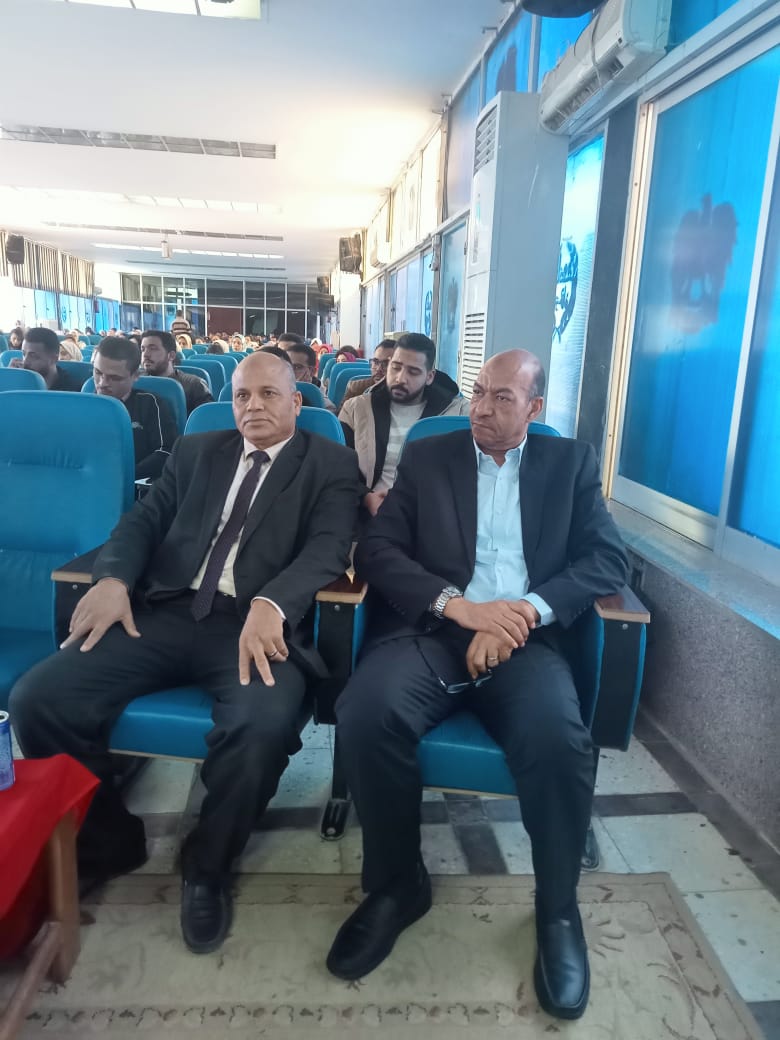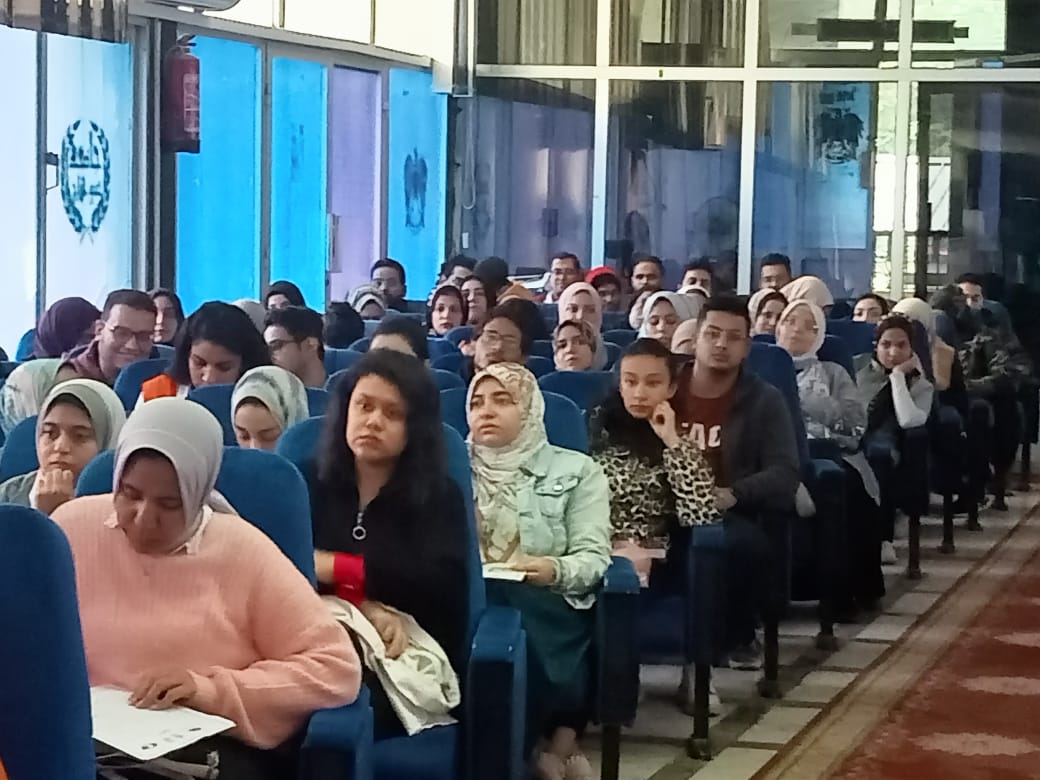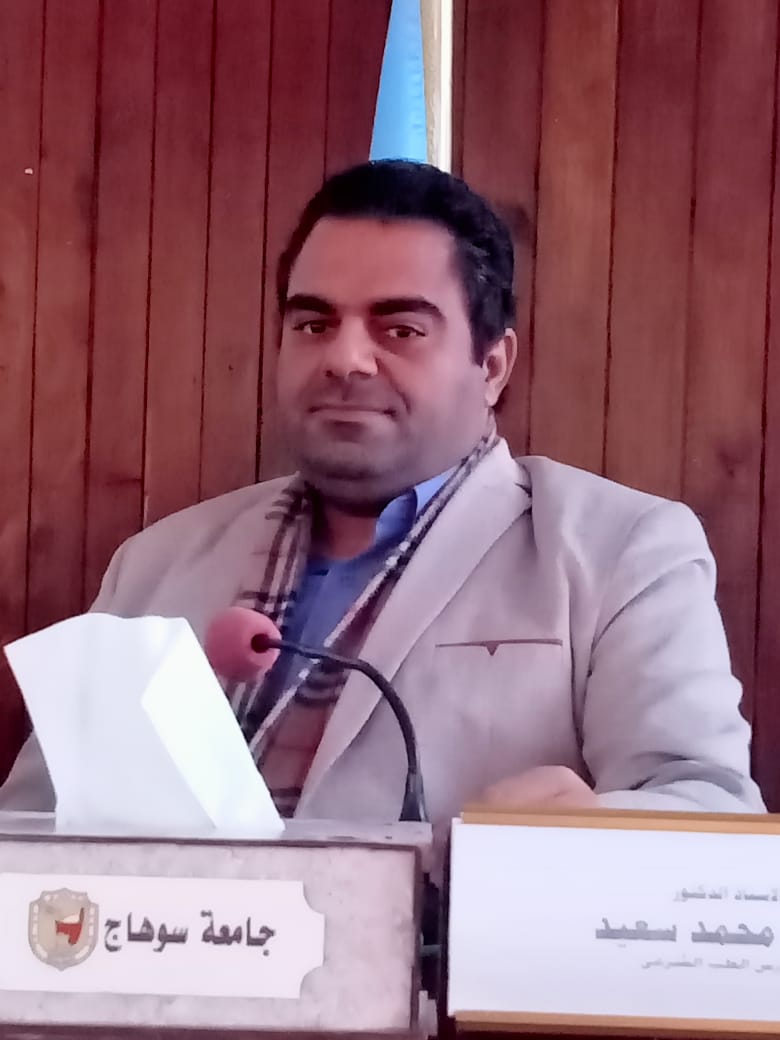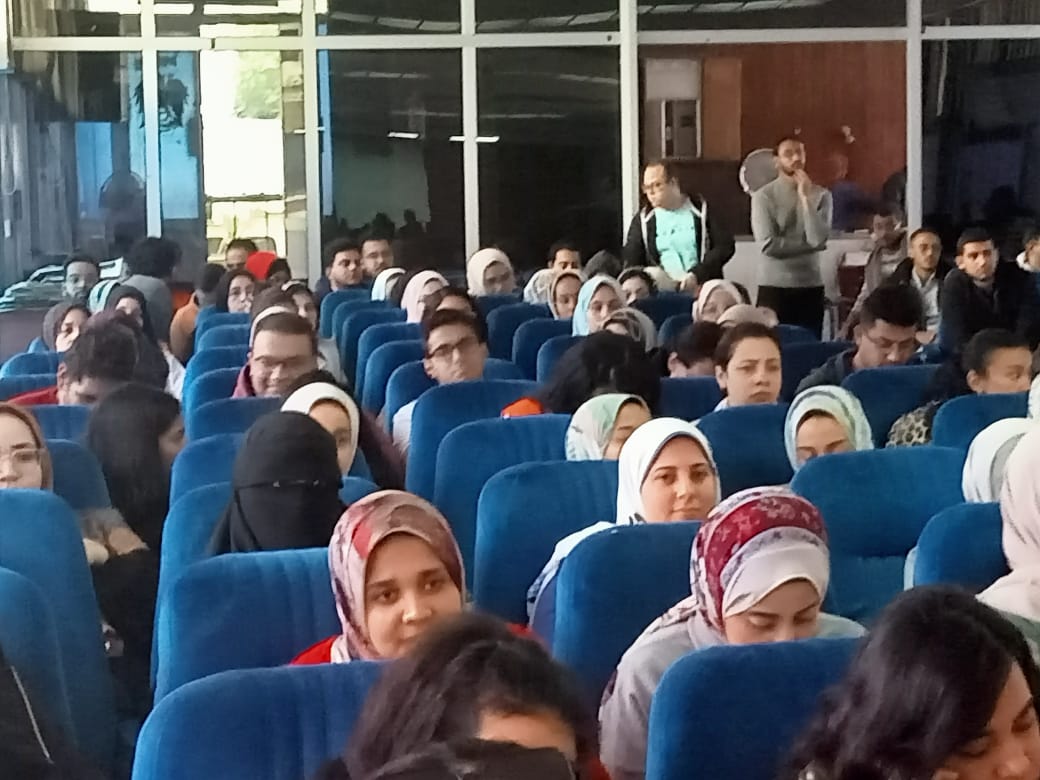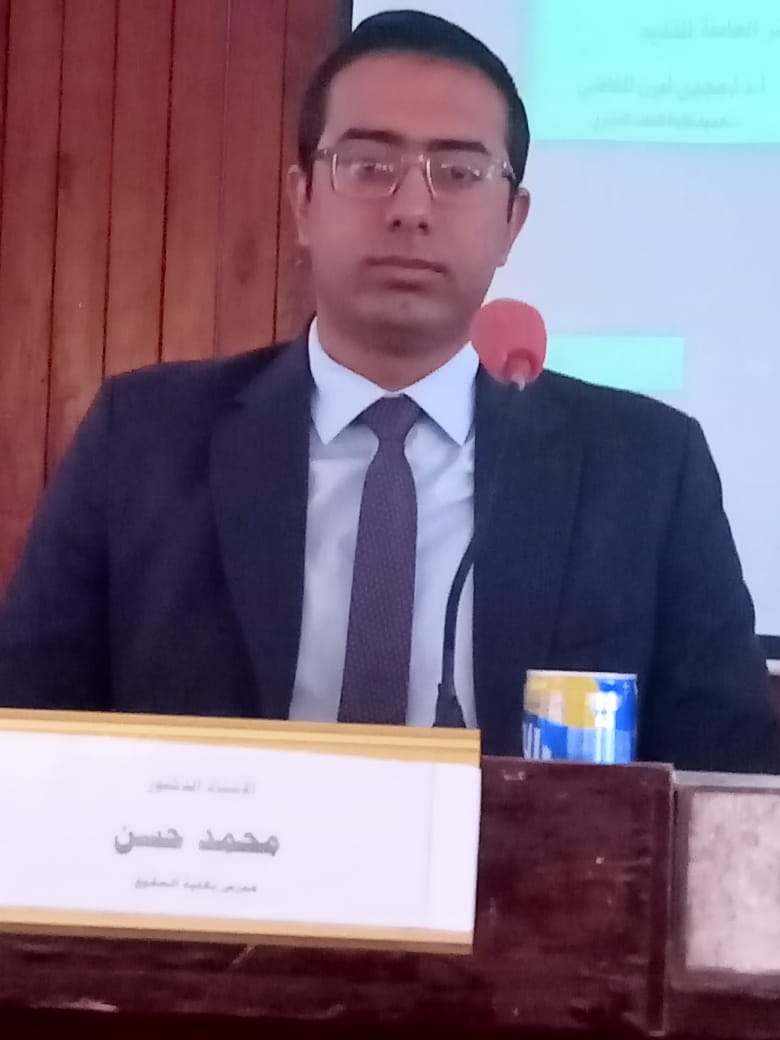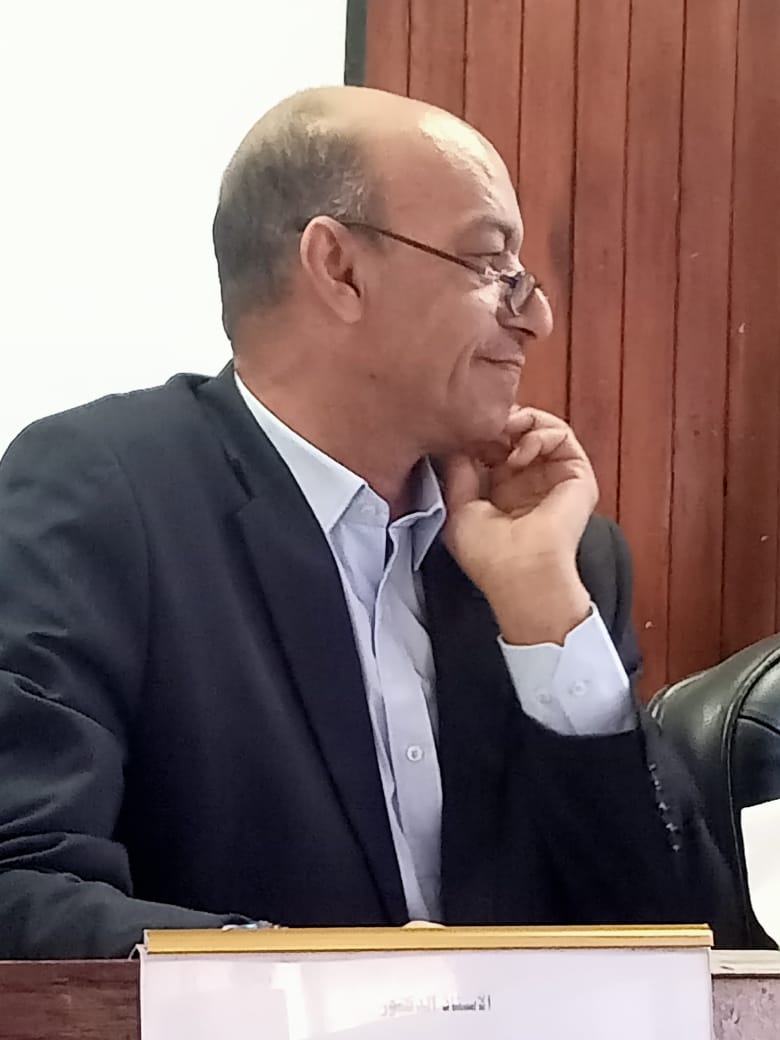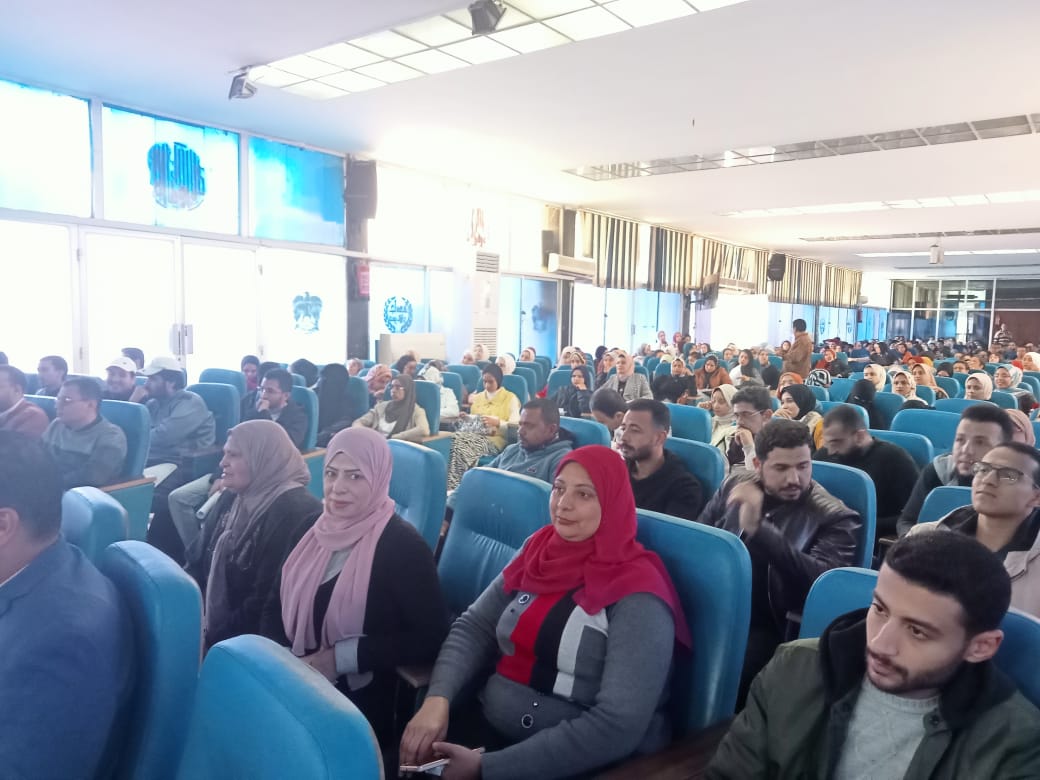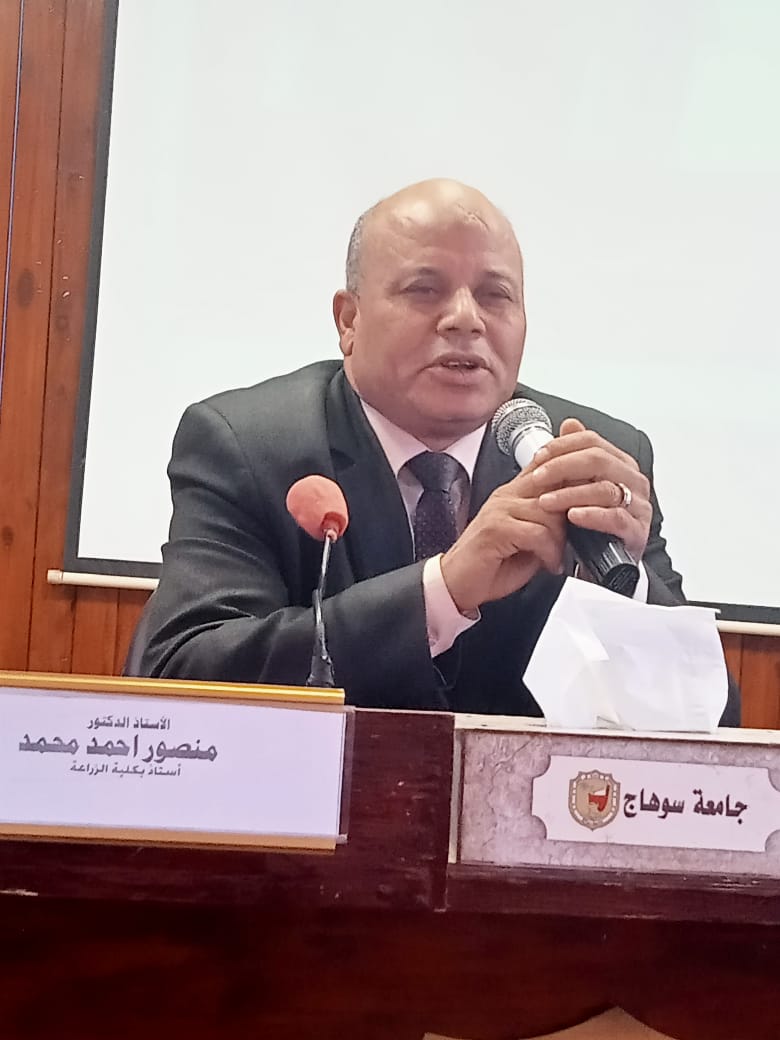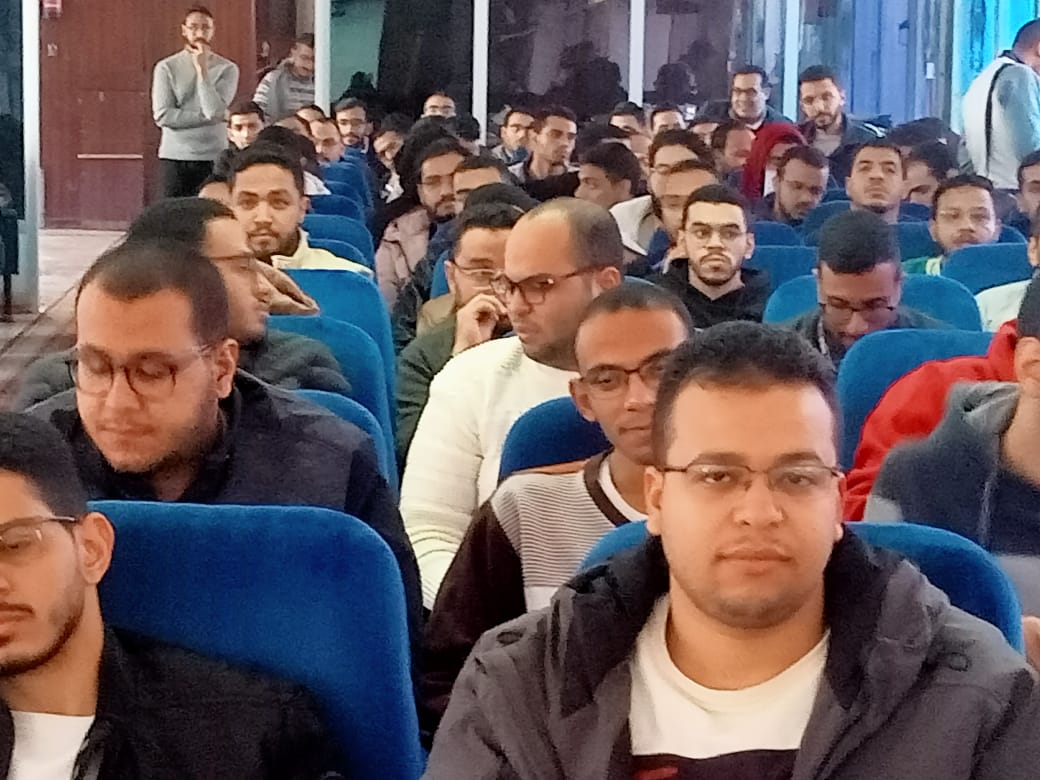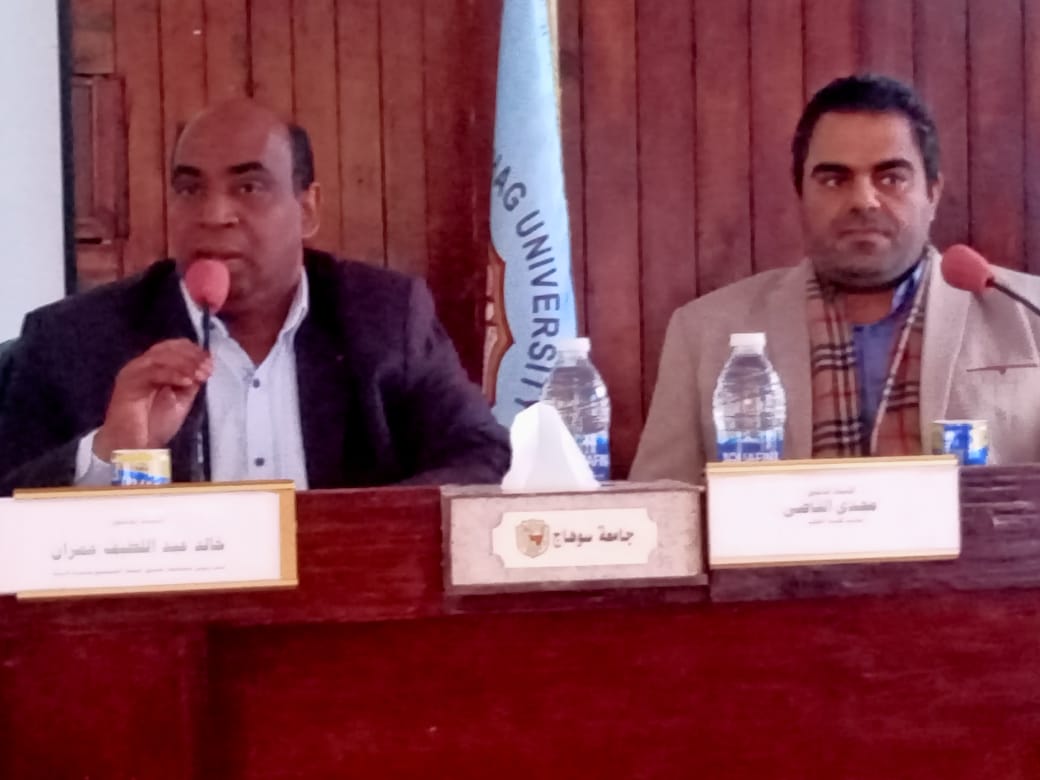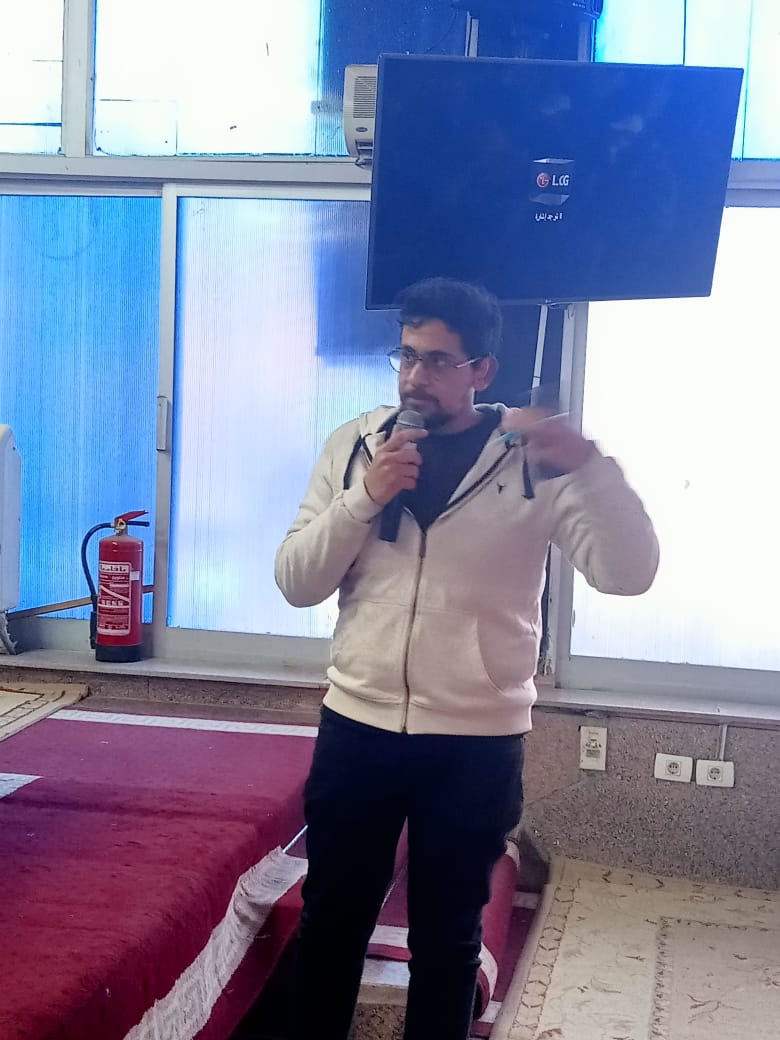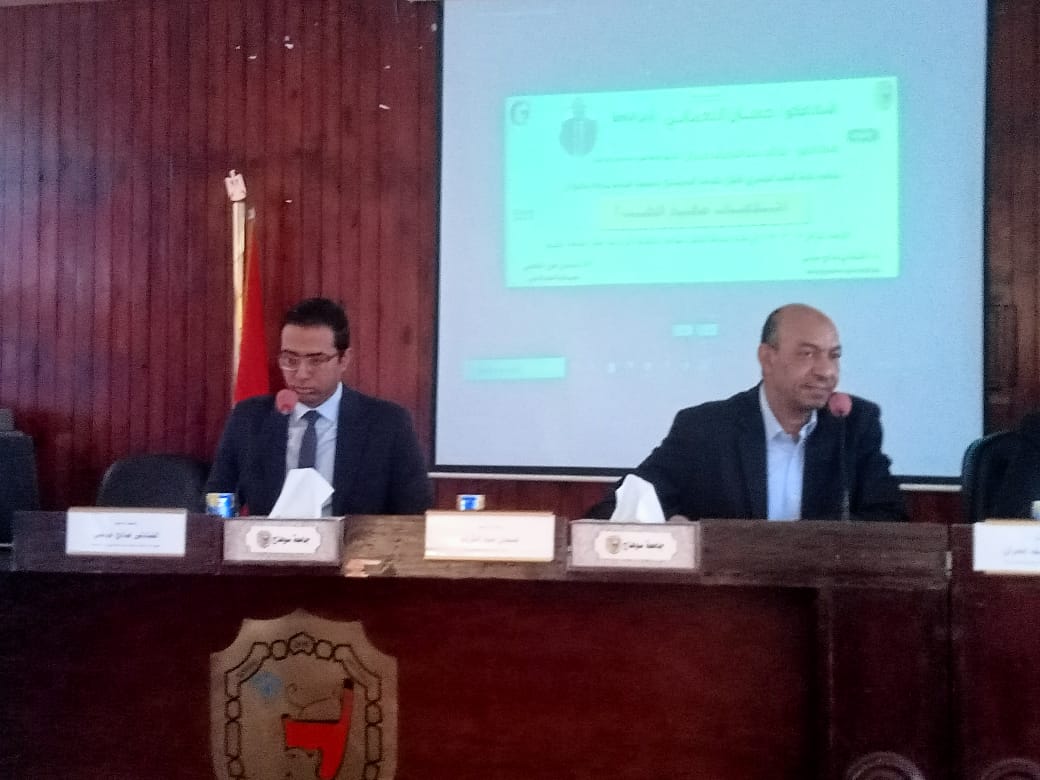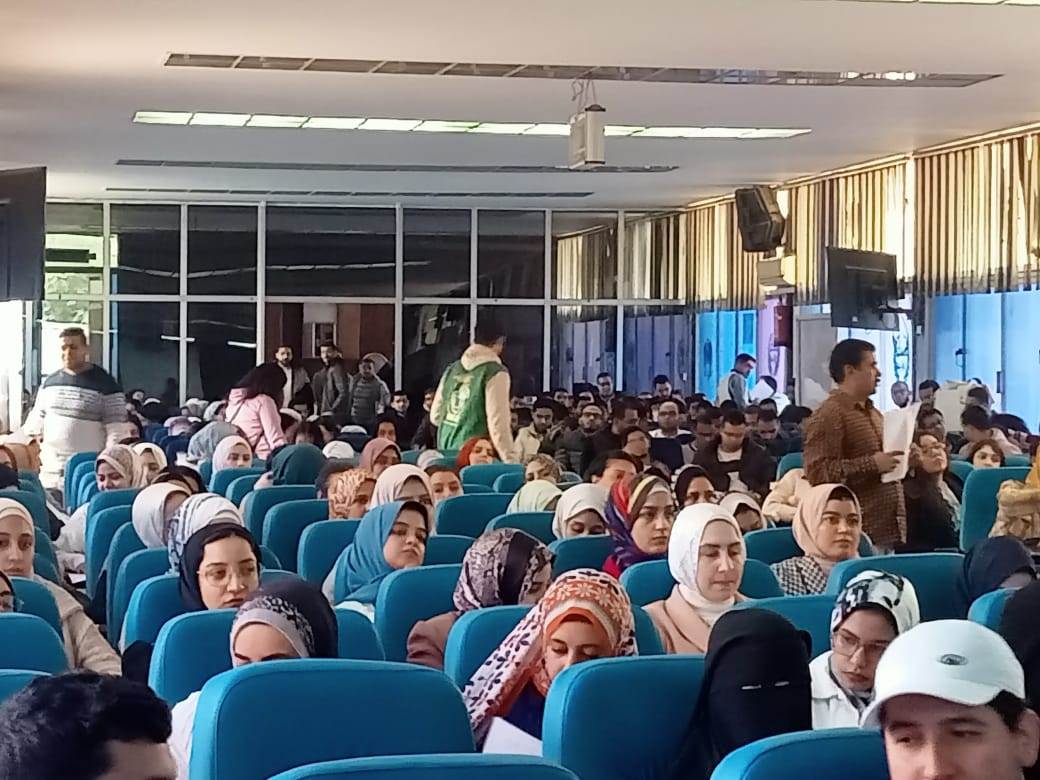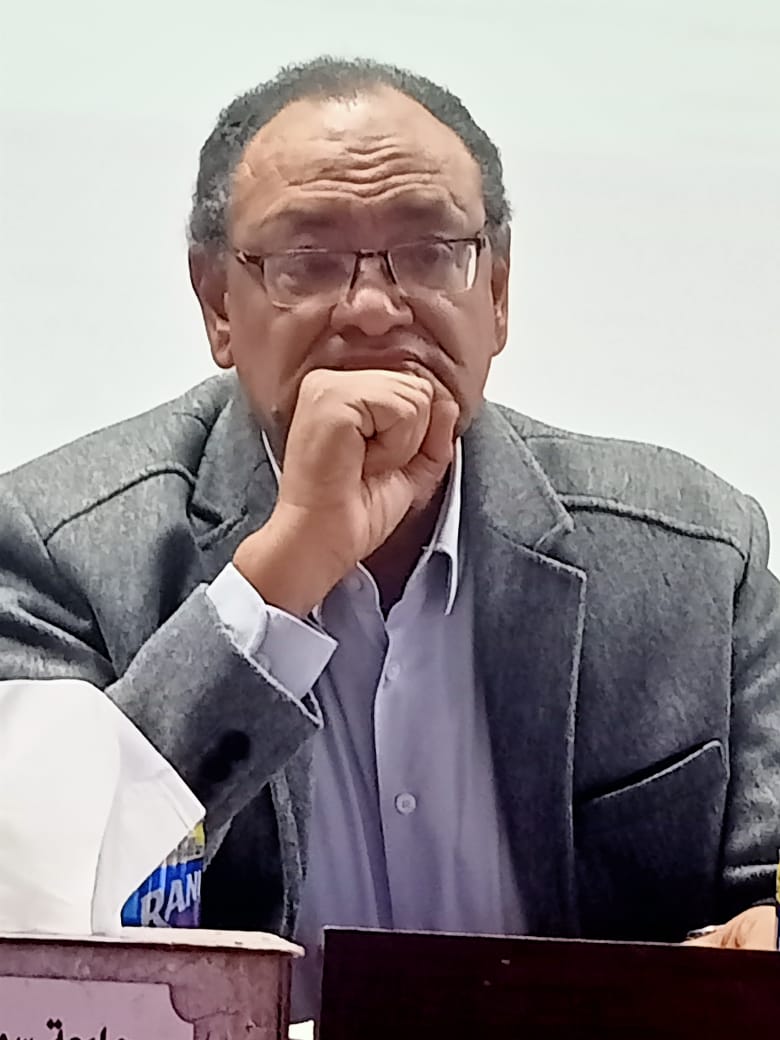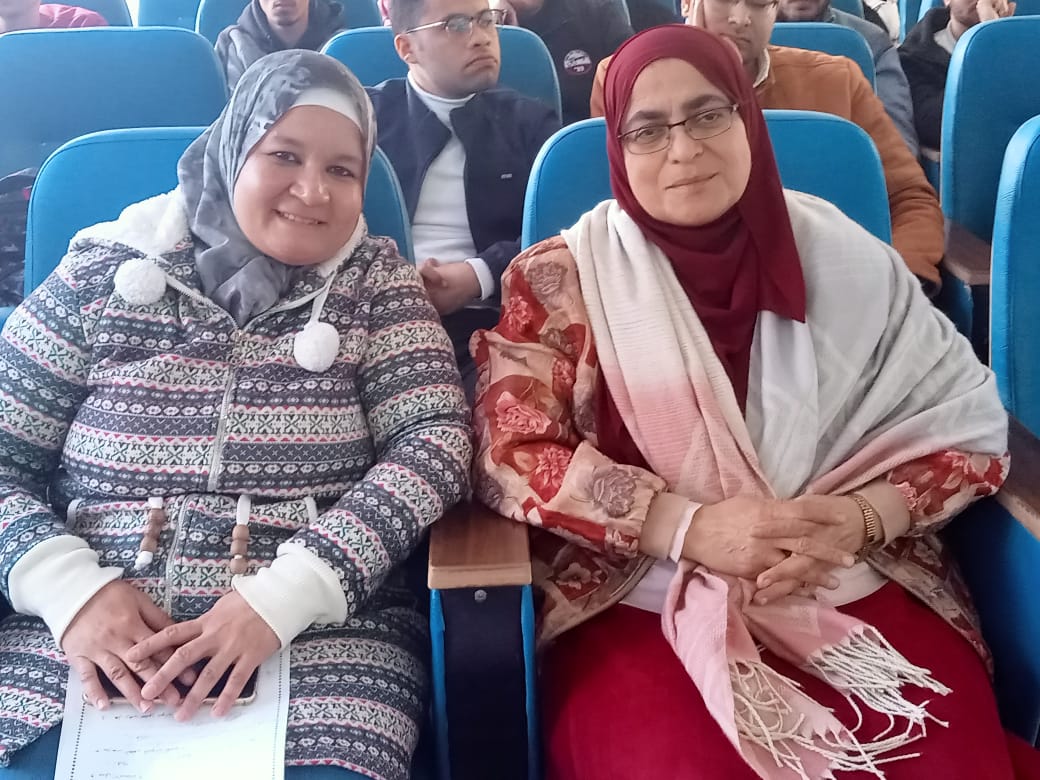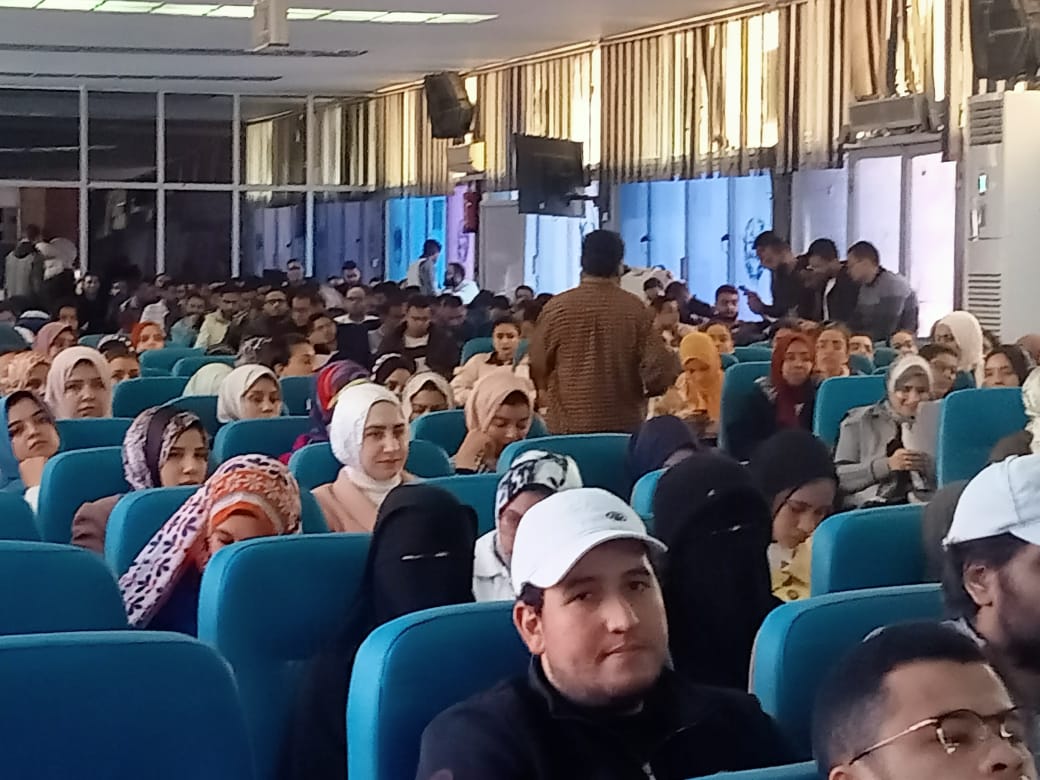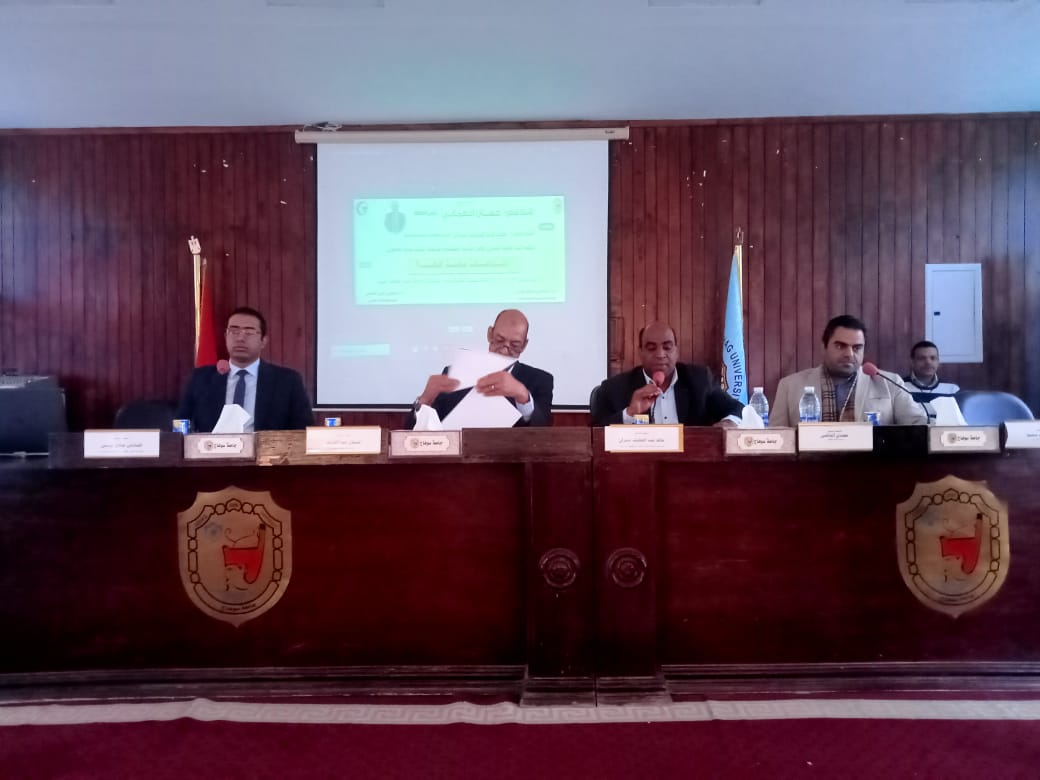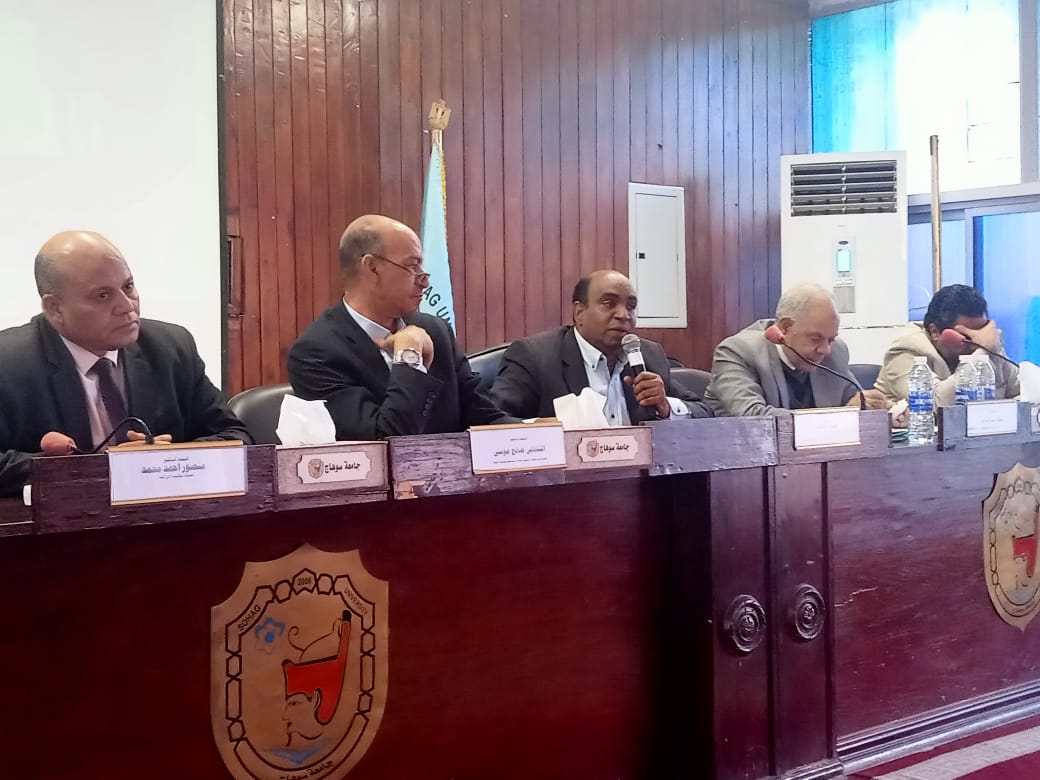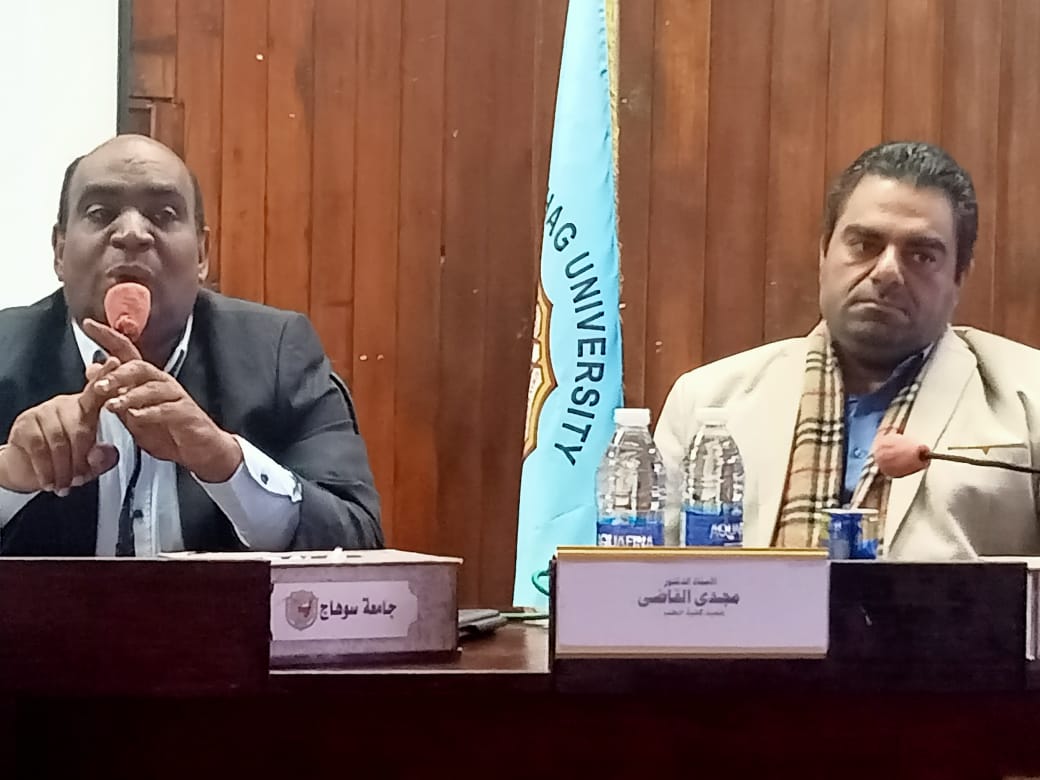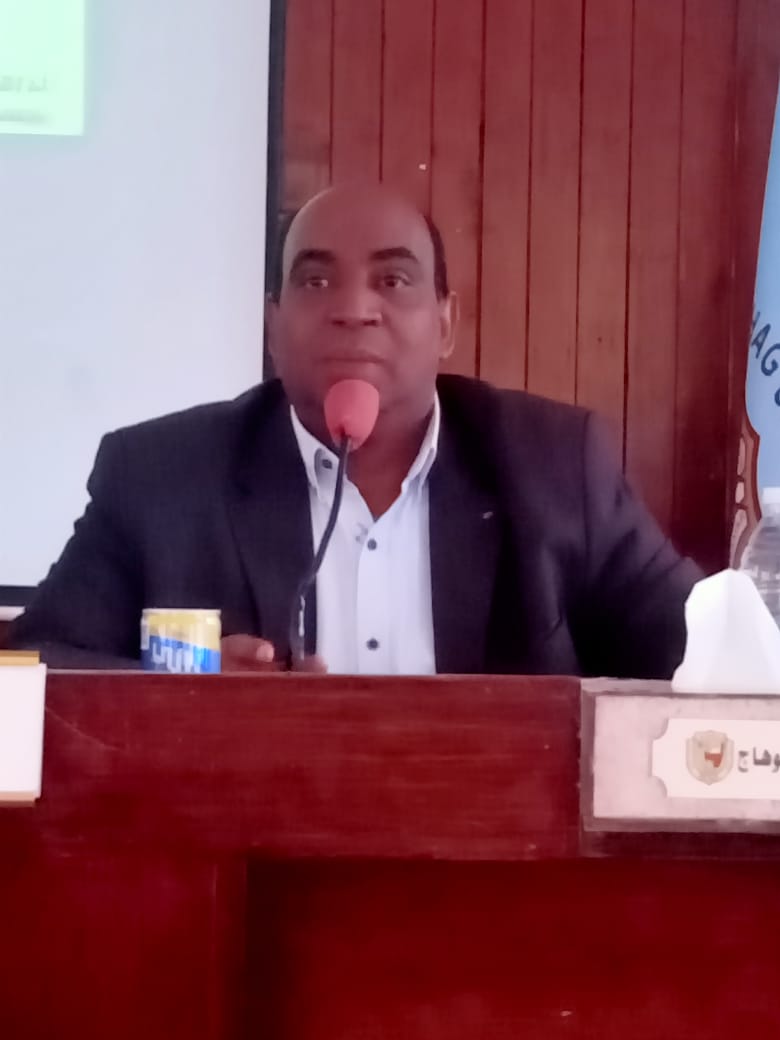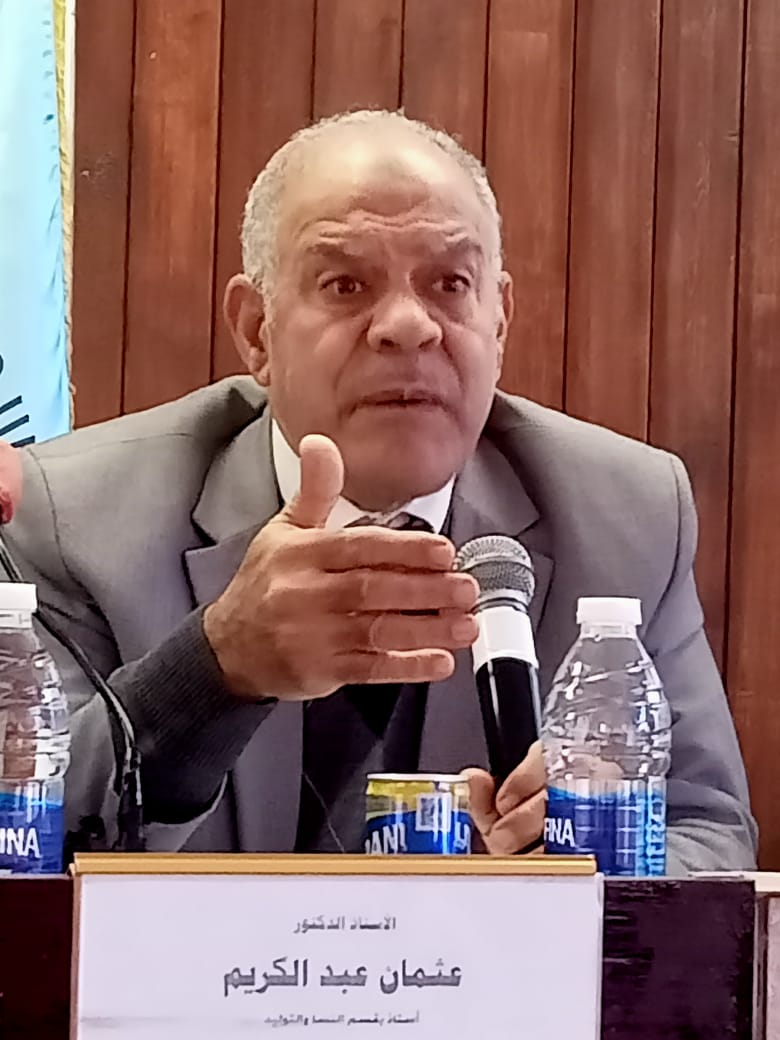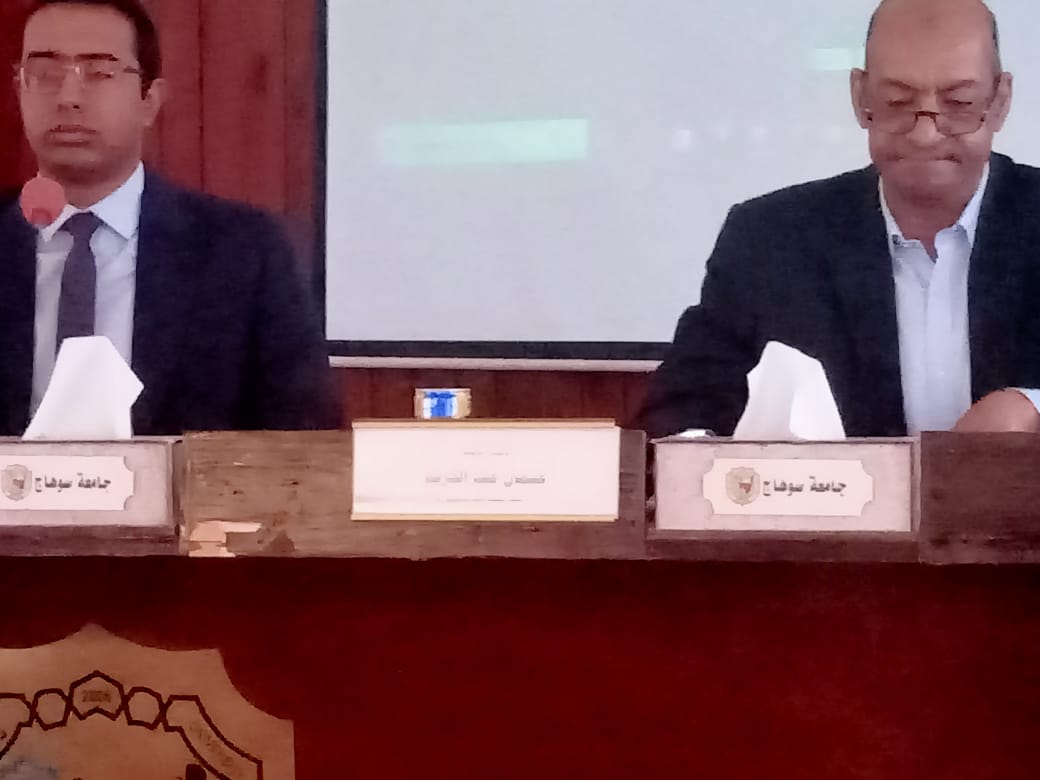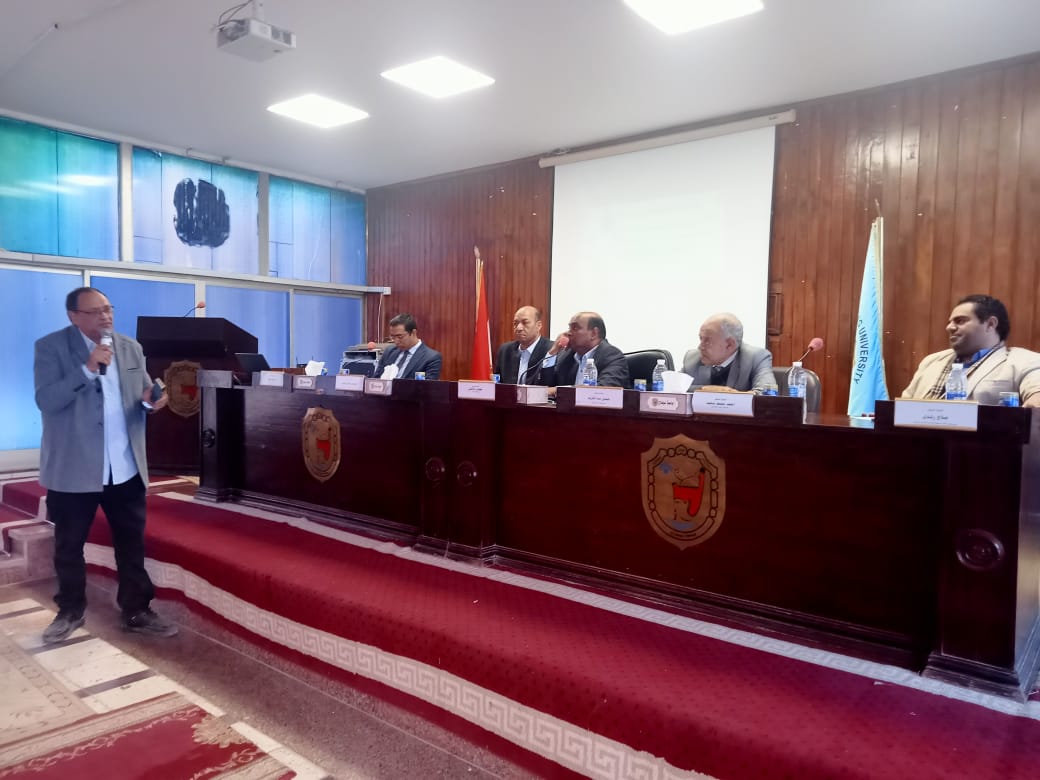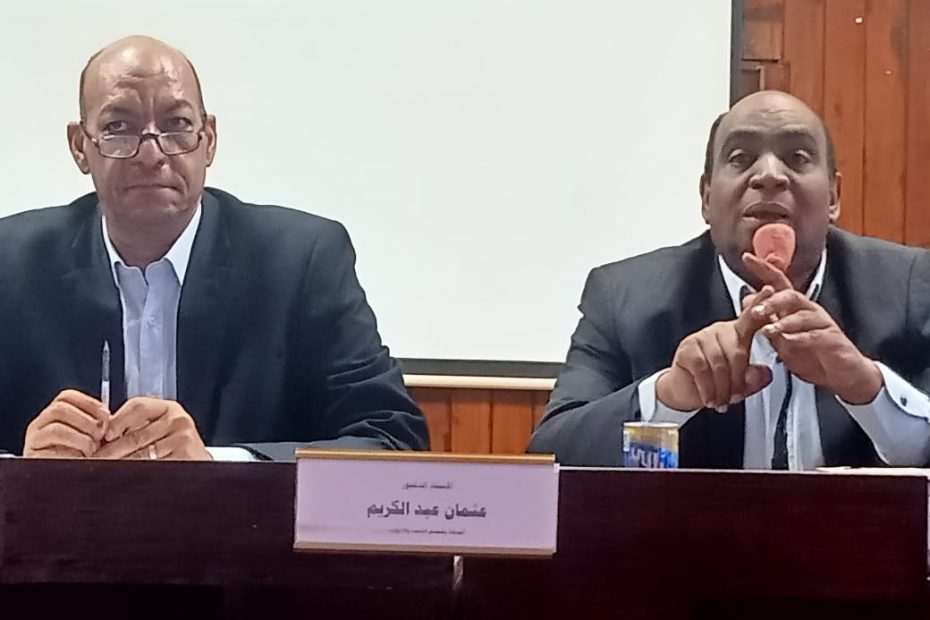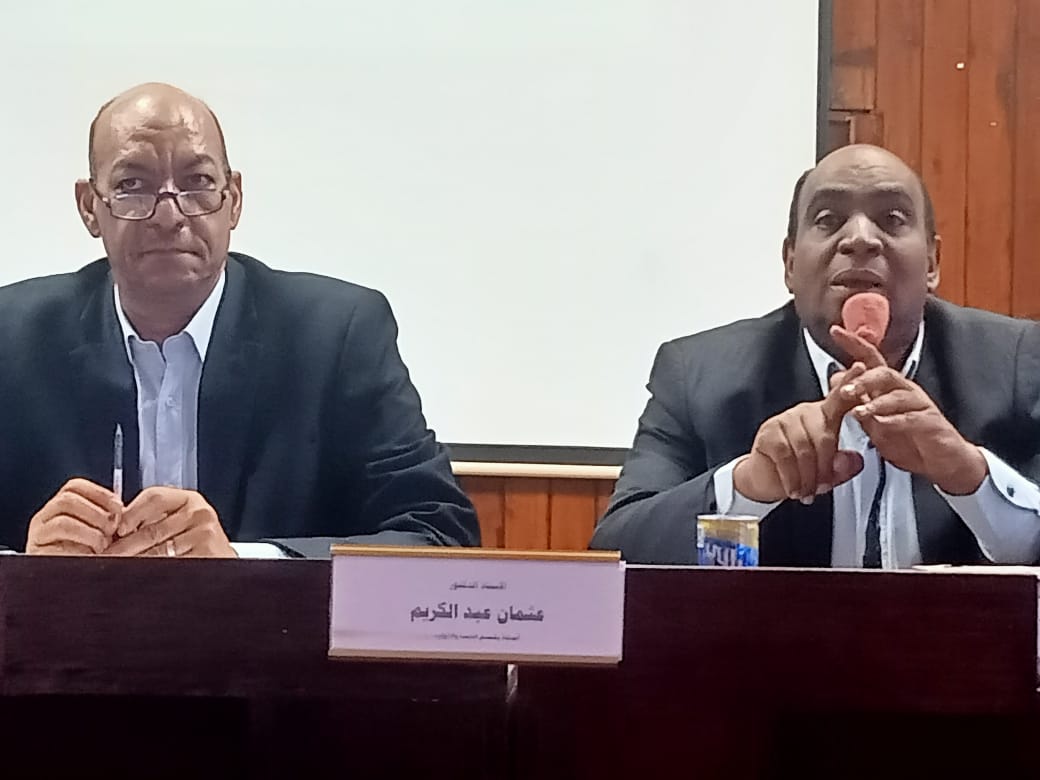
Under the patronage of His Excellency Prof. Dr. Hassan Al-Namani, President of the University, and under the supervision of: – Prof. Dr. Khaled Abdel Latif Omran, Vice President of the University for Community Service and Environmental Development Affairs. Prof. Dr. Magdy Amin Al-Qadi, Dean of the Faculty of Human Medicine. Prof. Dr. Shazli Saleh Moussa, the college’s agent for community service and environmental development affairs. The Faculty of Human Medicine (Community Service Sector) organized a seminar titled “Ethics of the Medical Profession” on Wednesday, 27/12/2023. The seminar was attended by: – Prof. Dr. Othman Abdel Karim, Professor in the Department of Obstetrics and Gynecology. Prof. Dr. Ahmed Fawzi, Syndicate of Doctors. Prof. Dr. Ahmed Mohamed Said, Professor in the Department of Forensic Medicine. Prof. Dr. Mansour Ahmed Mohamed, Faculty of Agriculture. Prof. Dr. Mohamed Hassan, Faculty of Law. And a group of professors, faculty members, and students of the college. Dr. Shazli spoke about the specifications of the doctor that he must possess a set of qualities and skills: – such as honesty – ethics – trust – commitment – competence and understanding – courage – optimism – containment and empathy and humanity. Then the word was transferred to Dr. Magdy who welcomed the faculty members and the attendees and said that the medical profession is one of the noble, honorable, and great professions that the doctor must possess and we must look at it as a human message to serve patients in a human framework that we respect through the laws that regulate it. Then Dr. Mohamed Hassan spoke, who addressed the legal aspect and the binding relationship between the doctor and the patient, that it is a contractual relationship between the two parties and that there are conditions for the permissibility of medical work: – 1- License to practice the profession. 2- Patient satisfaction. 3- The purpose of medical work is treatment. 4- Informing the patient about his health condition. He also spoke about civil and criminal responsibility. Then Dr. Ahmed Fawzi spoke about: –
- Professional ethics
- The pressures that the doctor is exposed to during his work.
- How the doctor acquires medical skill. Dr. Ahmed Said also spoke about: –
- The medical profession and its ethics.
- The syndicate responsibility, which has the right to apply a penalty to the erring doctor.
- Implicit, oral, and written medical approval.
- License to practice the profession
- Medical liability law
- Licensing the place to practice the profession Dr. Mansour also spoke about ethics, which require the doctor to acquire skills such as: –
- Effective communication skill and its importance
- Speaking and writing skills
- Listening and application skills
- Language acquisition and reading skills
- The difference between the listener and the listener. Finally … Dr. Othman spoke That direct dealing with the patient leads to the acquisition of skills and creates situations and experiences and thus performs the required services from him and that the medical profession requires study and effort throughout the life of the doctor and that the period of privilege and representation is a learning period. He also spoke about the right of the doctor and how to ensure his safety from the harassment he is exposed to during his work. He also spoke about the patient’s privacy and giving him enough respect for his mentality and culture and conveying the medical information to him in the simplest words and not being arrogant to him and knowing his financial situation.
